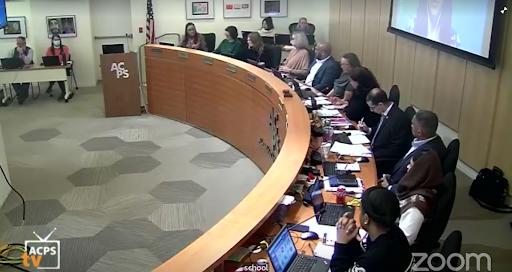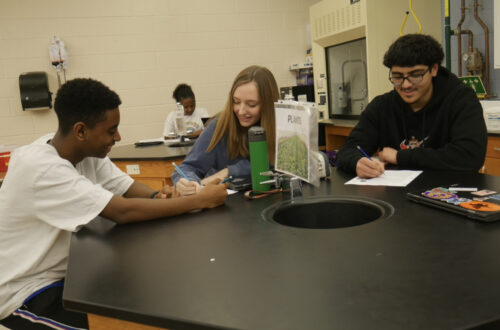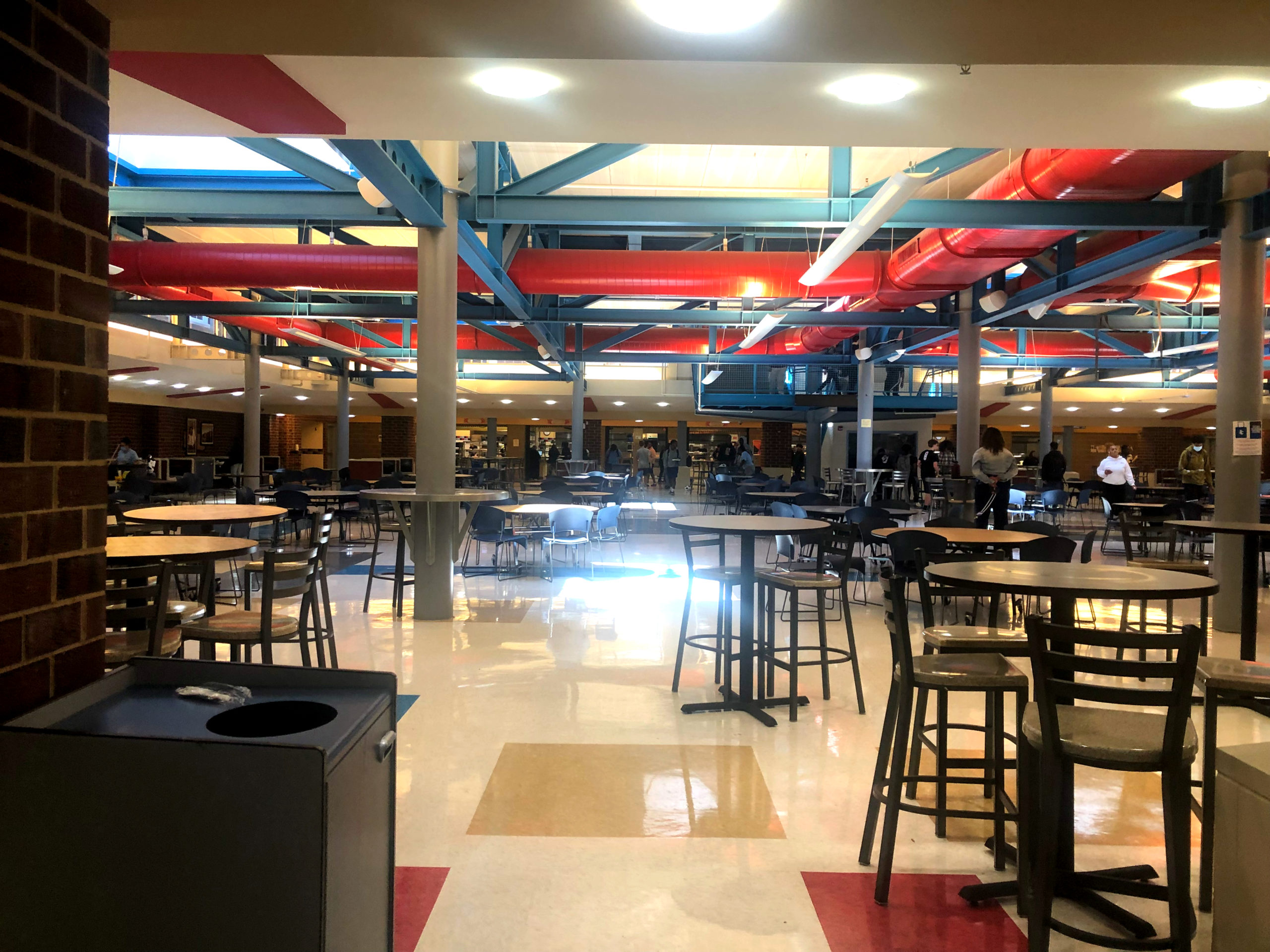Staff Writer
This article has been updated as new information has become available.
The Alexandria City School Board voted 7-0 on February 2 to approve a measure that initiated the implementation process for “weapons abatement technology” at the ACHS King Street and Minnie Howard campuses, as well as at Francis C. Hammond and George Washington Middle schools. The process began with the ACPS Central Office collecting opinions of stakeholders through a community survey in February and March, which they will use to present a formal installment proposal to the School Board at the upcoming March 16 meeting.
The technology, a sophisticated weapons detection system, is visually similar to a metal detector and would initially be implemented in a pilot program that could grow before next school year begins.
While adopting the weapons abatement technology garnered widespread support at the meeting, ACPS Chief of Facilities and Operations Dr. Alicia Hart said the recommendation was difficult for Central Office to make to the School Board. “[Central Office personnel] and I are not proposing the upcoming measure lightly,” she told the School Board, adding that she believes a “more robust security posture is needed in order to curb trends and unsafe behavior.”
Hart added that the abatement technology uses artificial intelligence and cameras to detect weapons, which is “less invasive” than traditional metal detectors. The technology would “allow [students] to walk through at a normal pace,” she said. “There is no need to stop or empty items.”
ACPS Interim-Superintendent Dr. Melanie Kay-Wyatt compared the visual appearance of the technology to the ACHS library theft detector. “Students walk through [the theft detector] every day. They don’t see it. It becomes part of [their] day,” she said.

The measure to implement the technology received immediate support from board members. Member Tammy Ignacio noted that she has historically not supported weapons detection technology, but her position has changed.
“I have always fought [the implementation of metal detectors],” Ignacio said. “It’s unfortunate [that], after Covid-19, we are where we are. . .The amount of gunshots we hear in our own community is devastating and scary. . . I certainly now understand the need [for abatement technology].”
Member Willie Bailey agreed, saying he supports the new technology “110 percent.”
The sole voice of opposition on the Board came from senior Student Representative Emily Milton.
“I don’t think this is the answer,” Milton said. “[The technology] will not go over well with students . . . [It will make them] feel more uncomfortable . . . and unsafe.”
Member Christopher Harris countered Milton. “[I would] rather [have] students be uncomfortable than unconscious,” he said.

Students have mixed opinions on the technology.
“I think it’s a necessary precaution,” said junior Kye Robinson. However, Robinson was skeptical about its feasibility. “There are just so many entrances to the building that a potential threat could use . . , and our school doesn’t have enough reinforcements,” he said. “I would not necessarily feel more safe [with the technology in place].”
Spanish teacher Leslie Auceda made a similar point. “I get the idea of [abatement technology] in order to give a sense of security, but [safety] may not be guaranteed,” she said. “Kids may be able to sneak things in [other doors], and with our current school population, I don’t see how [the technology] would just roll out.”
Auceda previously worked at a school in Washington D.C. that used metal detectors. “You need manpower behind [the technology] in order for it to run smoothly,” she said. “Those who run [the technology] would have to be thorough with every student, which can be difficult with such a large population.”
Auceda was also concerned with the potential for unconscious bias to affect the use of the system. “Based on a student’s race or ethnicity, they may be discriminated against by taking longer to go through [the technology] in comparison to other students,” she said.
Auceda added, however, that she was only familiar with traditional metal detectors and would have to do “more research” on the abatement technology that ACPS plans to implement.
English teacher Ignatzia Kaldahl has a different stance. “I have been apprehensive about [the technology] in the past, but given the influx of threats in the past few years, I think that it’s best for the safety of students and staff,” she said. “[The weapons detectors] are discreet. They would make me feel safer.”
Sophomore Madison McNeill agreed with the implementation of the technology. “It will make me feel safer,” he said. With the technology in place, McNeill said “there will be less of a chance of someone in school having a weapon, and if they do have one, they will be dealt with accordingly.”
Without significant setbacks, the technology will be implemented in at least two ACPS secondary schools by late April.
Guest Contributor Aaliyah Royster contributed to the reporting of this article
Featured photo courtesy of ACPS





